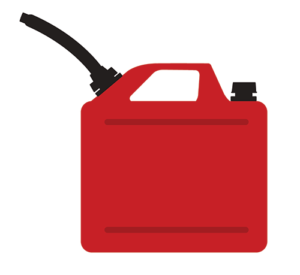Best Generator Reviews
There are different generators to choose from for your power needs. Each type is unique in its mode of operation, build, and fuel it requires. Understanding the types and how they function will help you in your quest to find the best portable generator on the market for your specific needs. Here are some of the most popular generator types and their properties.
Portable
Portable generators are light weight devices that run on gasoline, propane, or diesel and provide electricity up to a certain wattage level. They are usually used as an emergency power option at home during blackouts or short-term electricity needs on the job site or during outdoor events. RV and camping generators are also used as a primary source of electricity off-grid. Users can have them connected to a home’s electrical panel or plug appliances directly into them. The market offers a multitude of generators of various power, size, weight, and a multitude of features.
Inverter
Conventional generators are usually characterized by power surges that are particularly harmful to sensitive electronics. On the other hand, inverter generators convert the direct current into a smooth sine wave current. As a result, they produce a more stable and clean alternating current (AC). An inverter generator will have lower total harmonic distortion levels than a standard generator. Therefore, it is safe to use sensitive electronics and home appliances. In addition, inverter generators are usually lighter, quieter, and more fuel-efficient. Our dedicated article lets you learn more about the difference between inverters and generators.
Standby
In contrast to a portable generator, which provides instant but temporary electricity, a standby generator is a more permanent backup solution. Standby generators, or whole house generators, are powered by liquid propane or natural gas. They are permanently installed and connected to the electrical panel using transfer switches. If the grid goes down, they start automatically. They are usually used for whole-home needs and can run a house full of major appliances for days when necessary.
Additionally, they are widely used in hospitals, factories, and other facilities. A professional electrician is needed to install standby generators safely. Learn more about the difference between portable and standby units in this guide.
Fuel Options
The type of fuel a generator can run on is a crucial feature. Depending on the fuel choice, a unit can be more or less fuel-efficient, eco-friendly, and reliable in emergencies. Here are the most common fuel types used by generators.
Gasoline

Unlike diesel or propane, gas-powered generators are the most common type of generators. Gas-powered portable generators run on gasoline, cheaper than other fuel types. They are fuel-efficient and come in various sizes and models, making them simple to transport. Additionally, gasoline is readily available, assuming the power grid is functioning. What is needed to run a fuel pump? Electricity. Ironically, during a blackout, it can be impossible for your local gas station to provide gasoline. Therefore, you need to keep some on hand. However, remember that gasoline is an unstable hydrocarbon and will decompose over time. It has a safe shelf life of about three months. The smart, albeit inconvenient, thing to do is to pour aging fuel into your car, then refill the containers with fresh fuel. The shelf life of gasoline can be extended by using fuel stabilizer, which slows down the decomposition process.
As for other fuel types, propane is usually less expensive than gasoline and can be stored indefinitely. However, propane-powered generators are not ideal heavy duty use. The logistics required to install and store them are quite prohibitive. These fuel systems are also very complex and are subject to frequent failures.
On the other hand, diesel has a longer shelf life than gasoline. However, diesel-powered generators are slightly more expensive. Moreover, the emissions of such engines are prohibitively high, and it is advisable to limit the amount of time you run these generators in a day for environmental protection.

Dual Fuel
Dual fuel generators run on either gasoline or propane. They function as units that use one fuel type. But with the added convenience of switching between fuels based on user preferences, current needs, or availability. Dual fuel generators can save money since propane is usually cheaper. They are also more fuel-efficient when gasoline is used.
Finally, a dual fuel generator gives you the option and flexibility to choose, which is always good in emergencies when fuel is not always available.
Solar

Solar generators trap the sun’s energy using solar panels and convert it into electrical energy. They work differently than a typical generator in that they receive the energy from a solar panel and store it in a battery bank (lithium-ion battery) for later use. They produce clean, free energy, and the fact that solar energy is a renewable resource means that you will hardly run out of ‘juice’ for your generator. Solar generators have no moving parts, which makes maintaining them a breeze. They can be used outdoors and indoors since they have no fumes or emissions.
When comparing solar to other fuel types, the total power produced by this passive generator is relatively low compared to other generators. Therefore, they are not ideal for running large appliances such as air conditioners unless you have a big enough solar setup.
A Few Manufacturers

